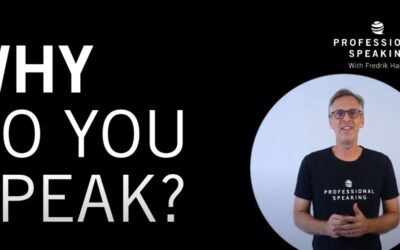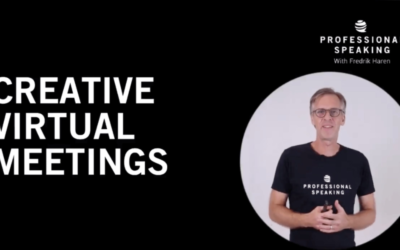
If you ask me the most difficult speaking assignments as a professional speaker are dinner speeches where you are asked to deliver a business speech during a dinner. So how should one approach a speaking opportunity at dinner?
Before I answer this question, let’s look at WHY being a dinner speaker is more difficult than speaking during a conference:
When people are attending a conference their brain is in “work mode”, that means they are open to learn new things.
But when the conference is over and the event turn into a evening dinner, then the mind goes from “work mode” to “party mode” and then people are more interested in talking than in listning.
(In this post I am talking about giving a BUSINESS speech during a conference dinner, not about giving a social dinner speech).
So now let’s answer the question: how should one approach a speaking opportunity at dinner?
1) Always try to speak as early as possible. (preferably BEFORE the starter is served.)
The earlier you speak the lower the risk that the group is in “talking mode”.
2) Try to get a SHORT speaking slot.
Dinner speeches should ALWAYS be short. Usually shorter than the organisers are suggesting. Try to convince them to cut the speaking slot to a minimum,
A 20 minute dinner speech feels longer than a 45 minute speech at a conference.
3) Add more humour.
A business speech during a dinner is there to add knowledge and insights to the group (if they wanted a social speaker they would have invited a stand-up comedian or any other entertainer.)
Having said that people are expecting to be entertained if their dinner is to be interrupted. So add as much humour as you can into your speech (more than you would have in a conference speech).
Finally let me share a bit about the characteristics of the different kinds of speaking slots during a dinner:
Speaking slots during dinners are, in a way, similar to the different dishes during a dinner.
“The Appetiser” – the opening speaker during a dinner. There to give a taste of the evening. Normally the CEO or highest boss. Short, short, short.
“The Main Course” – When you speak just before or during the main course you can give a slightly longer speech that is more “heavy” in content.
“The Dessert” – If you are scheduled to speak after the dessert your message needs to be “sweeter”, not so so heavy. (See above about how people are more and more entering “party mode” as the evening plays out.)
A dessert speech might be less heavy on content, but just like a good dessert leaves a taste in the diners month that lingers on after the meal, in a similar way a good dessert speech inspires some kind of a message into the audience that lingers in their minds when they leave the dinner.
Tonight I was invited to speak at the dinner for the most important clients of Standard Chartered Bank in Singapore.
“The Appetiser speaker” was the global group CEO.
“The Main Course speaker” was Mr. Tharman Shanmugaratnam, the Deputy Prime Minister of Singapore.
“The Dessert speaker” was me.
Of course the main speaker, and the guest of honor was the Deputy Prime Minister who gave his views on the economic outlook for the world, for Asia, for ASEAN and for Singapore amongst other things.
Then during the dessert I held a speech about the need for change that hopefully inspired the audience to think bigger thoughts.
My speech started at 8.50 and ended at 9:10 PM.
To speak to a big group of senior business leaders at the end of a dinner, at 9 PM is a challenge, but by trying to make it light and entertaining my speech was hopefully a good balance to the more heavy, Economic outlook speech by the guest of honor.
Hope you have gain some insights of the fun but difficult assignment of delivering a business speech during a corporate dinner.




